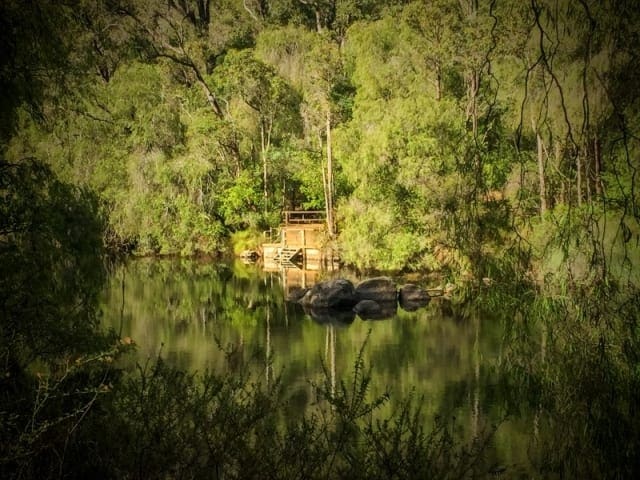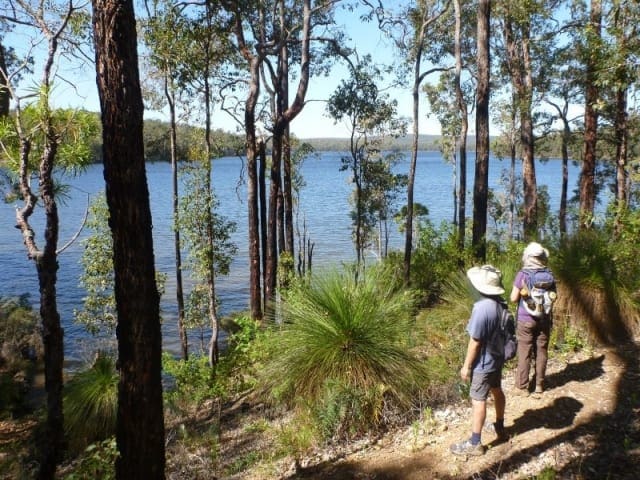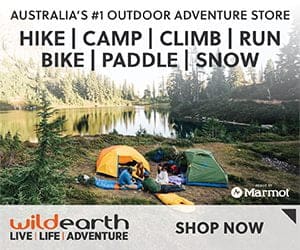Trail Fast Facts
Munda Biddi Trail is a 600km, grade 3 hike in Regional Western Australia, Western Australia. This hike typically takes 50 days to complete.
Hike Overview
Paralleling the famous Bibbulmun walking track, this massive mountain bike and walking trail will eventually reach from Mundaring near Perth to Albany.
The first 333 km section from Mundaring to Collie was finished in July 2004, and by 2009 was half completed with the 498 km to Nannup open.
Below are some of the major sections that follow railway formations. With the relatively gentle grades typical of railway formations, the sections below may be a good choice for those wanting to cycle a section of the Munda Biddi.
About one third of the distance will be on old railway formations making it among the longest rail trails in the world.
Track Grade
Grade 3 (Moderate) - Walks for Most Fitness Levels: Grade 3 on the AWTGS represents moderate walking tracks. These are ideal for walkers with some fitness who are comfortable with some hills and uneven terrain. While suitable for most ages, some bushwalking experience is recommended to ensure a safe and enjoyable experience. Tracks may have short, steep hill sections, a rough surface, and many steps. The total distance of a Grade 3 walk can be up to 20 kilometers.
Map and GPX file
Help fellow hikers navigate with confidence. Share your GPX or KML file for this trail and help build a more comprehensive resource with precise waypoints and elevation profiles. Your contribution will empower adventurers with details they need for a safer and more enjoyable experience. I meticulously verify every file using official maps and surveys, ensuring the highest level of accuracy and reliability. Submit your file now and become a trailblazer for your fellow outdoor enthusiasts.
Trail Location (trailhead)
Sorry, no records were found. Please adjust your search criteria and try again.
Sorry, unable to load the Maps API.
Photo gallery
If you have any photos from this hike and are happy to share them, please upload your .jpg files here.
Please note: Uploading photos does not transfer ownership of copyright away from you. If requested, you will be credited for any photos you provide and can ask they be deleted at any time.
About the region
A Wander out Yonder in WA will make you feel like you've truly reset, reconnected and had a real holiday. WA is full of adventures waiting to be discovered. Travel further, stay for longer and explore the wonders only WA can offer. Share the water with wild dolphins, or see the gorges of Kalbarri from a new perspective in WA there's more in store than you could ever see.
Similar trails nearby
Explore Safe
While planning your hike, it’s important to check official government sources for updated information, temporary closures and trail access requirements. Before hitting the trail, check local weather and bushfire advice for planned burns and bushfire warnings and let someone know before you go. Plan ahead and hike safely.
Let someone know
Adventure with peace of mind: Fill out your trip intentions form. Before you hit the trail, fill out an online form to privately send important details about your hike to your family or friends. If you don’t return on time, they can easily alert emergency services, preventing worry and ensuring a swift response. Hike with peace of mind and enjoy your outdoor adventure to the fullest. Be smart, be safe: Register your plans here.
Gear to consider
What you carry in your pack will depend on the weather, terrain, time of year, type of adventure, and personal preferences. Having trouble deciding what gear’s right for you? My free planning, food and packing checklists provide an introduction to things your could consider (as well as the Ten Essentials) on your day, overnight and multi-day adventures. Customise your kit according to your personal needs, always considering safety first.
Suggest an edit
Trail changed? New features discovered? Has the route changed? Trail permanently closed? Help fellow hikers by suggesting edits! Click above to update route descriptions, GPX file, trail features (like boardwalks), or access conditions (like parking availability). Help me keep the trails info fresh!
Weather
Acknowledgement of Country
Trail Hiking Australia acknowledges the Traditional Owners of the lands on which we hike and pay respects to their Elders, past and present, and we acknowledge the First Nations people of other communities who may be here today.











3 Reviews on “Munda Biddi Trail Walk (600km)”
Anita Karnakowski
One for you Leonie Crowe
Mikaela then there’s also this one…
Brooke Louisa Nolan we should cycle this?
here’s a hike for ya Shane Mervin
It’s more like 950K +
Rosemary Andrykanus ?? good point
Rosemary Andrykanus ?? I like hiking but that’s 50 days of my life.